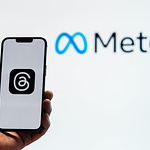Welcome to Episode 76 of the Transcript Podcast. This week, we dissect the key takeaways from Jerome Powell's press conference last week, tackle the prevailing inflationary psychology, and check out a few developments in Electric Vehicles vs ICEs.
A transcript of this podcast, with relevant images and quotes, is available for all subscribers today just below the show notes. The episode is based on yesterday's newsletter which is available on Substack
You can listen to our podcast on Apple Podcasts, Spotify, Google Podcasts, YouTube, and Amazon Music.
Show Notes
00:00:00 Introduction
00:00:10 A Focused Fed
00:01:10 It Might Take Time
00:02:53 Pay Attention to This
00:04:37 Is Inflation Peaking
00:08:10 EVs vs ICEs
00:12:56 Conclusion
Transcripts
Introduction
[00:00:00] Scott: Welcome everyone to a new episode of The Transcript podcast. You've got me, Scott Krisiloff, I'm editor of The Transcript along with Erick Mokaya who's our lead author.
A Focused Fed
We sent out a new issue of the newsletter yesterday and last week, the biggest event, which I'm sure all of our listeners have seen already, was that the Fed met and raised interest rates by another 75 basis points. So another large increase. Jerome Powell reiterated his hawkish stance from Jackson Hole, and talked about moving to a restrictive monetary policy. I think for the first time that I really keyed on at least. And talked about how we're just barely getting to a restrictive stance. The FOMC members were forecasting above 4% short-term rate by the end of the year, which I think is high. More hawkishness from the Fed. Erick, any thoughts?
“I want to start here today by saying that my main message has not changed at all since Jackson Hole. The FOMC is strongly resolved to bring inflation down to 2%, and we will keep at it until the job is done. So the way we’re thinking about this is the overarching focus of the committee is getting inflation back down to 2%” - Federal Reserve Chair Jerome Powell
[00:00:48] Mokaya: Yeah, I think also that's the same thing that I picked. I think it was just a reiteration of the Jackson Hole conference, which marked a significant turning point for the Fed in terms of the thought process that they have around inflation, that they are hell-bent on going all the way to make sure that inflation comes down . It was quite interesting that the first thing he said just before the Q&A, was that my main message here has not changed since Jackson Hole. We're going to do everything to bring down inflation.
"We have got to get inflation behind us. I wish there were a painless way to do that. There isn’t. So what we need to do is get rates up to the point where we’re putting meaningful downward pressure on inflation, and that’s what we’re doing. And we certainly don’t hope – we certainly haven’t given up the idea that we can have a relatively modest increase in unemployment. Nonetheless, we need to complete this task” - Federal Reserve Chair Jerome Powell
It Might Take Time
There is a chart that I've been looking at from the Bank of America about inflation and how long it takes to bring down inflation once it's above the 5% level. The chart clearly shows that on average it takes around 10 years to bring that inflation back down to the Fed's target of around 2%. They give reference to countries like Greece where it took 28 years plus. Italy, Portugal, Spain, which took them around 16 to 18 years in the 1980s. The key takeaway from the chart is obviously that it may take us quite a while to get back to the 2% level that the Fed wants the inflation to be and that may be actually looking at rates, which may be higher for longer. But also there's a quote at the end, which was from Stanley Druckenmiller who was talking about when he saw Paul Volcker in the seventies or eighties when the inflation was pretty high. He thought the guy was maniacal in terms of the focus he had on bringing down inflation, hell bent on taking interest rates as much as 20% to make sure the inflation, which was then around 12%, would come down as much as possible. When you listen to Jerome Powell these past two months and especially after Jackson Hole, you get the same feeling that he's really keen to use everything in his power to bring down inflation.
“Volcker had just come in. All of Wall Street was talking about inflation going to 25%. Bonds, I think, yielded like 14%. Nobody wanted anything to do with bonds. I watched this guy give a talk. And I said, Oh, my God, this guy is a maniac. He's gonna do whatever it takes to break inflation. And he raised rates to like 20%. And I think inflation was 12, or 13. In my mind, he was going to crush the economy, he was going to crush inflation. So I put 50% of our money into 30-year bonds and the rest in cash. I own no equities, which was heresy. And we went into a terrible recession, the bonds never traded there again. It was the luck of the draw. Trust me, David, if I had started in a different moment, I would have had a bad year and I probably would have gone out of business. But it was a rocket ship, particularly relative to what else was out there” - Duquesne Capital Founder Stanley Druckenmiller
[00:02:25] Scott: He's certainly signaling that something about it I still don't totally believe that the Fed is going to act as aggressively as it says it's going to. And that's probably just how we're all trained after this long period of easy money. But I think that therein lies the divergence that you're seeing at capital markets, where the Fed is saying that they're going to be very aggressive at tightening and capital markets still aren't really fully listening to them.
Pay Attention to This
“You want to be at a place where real rates are positive across the entire yield curve.” - Federal Reserve Chair Jerome Powell
"No one, myself included, and certainly Powell knows how high rates have to go to stem this inflation" - Omega Advisors CEO Leon Cooperman
And here's the important point. I think the most important thing that I read from the press conference was Jerome Powell, it was like a sub comment, was saying that real rates should be positive across the curve, which if we're running it six and a half percent inflation, six and a half, plus if the 10 year treasury yield needs to be above six and a half percent, you're talking about, let's even say it has to be at 6.5%, what type of equity premium are you going to put on that for equities, a couple hundred basis points? And then what's the multiple of the S&P500 based on that? You're talking about something like 12 and a half earning times multiple compared to a 19 times earnings multiple now. That's a big gap. And so that's a pretty back-of-the-envelope analysis, but if the Fed is having a tough time containing the inflation, if you think that the long-term inflation rate right now is 4, 5, 6, whatever percentage you're seeing, equities aren't close to pricing that in. And that is a scary situation for capital markets.
[00:04:03] Mokaya: So then heading into Q4 at least then you'd expect capital markets to actually, if they had to reflect the sentiments of the Fed, or the intention of the Fed, they need to go down from where they are currently. So it could be headed for another slump in terms of capital market performance going forward. But something else that they noted at least, cause something else that happened last week is the big banks CEOs were in front of the Congress being grilled on various aspects and the general agreement is the economic growth rate has slowed down this month. They can see that in various pockets and especially the part they highlighted the most was the housing market where they're seeing a significant slowdown.
Is Inflation Peaking
And again, that's something that the Fed referenced that that’s one area of the market that they are keenly watching in terms of seeing if it reflects their intentions in terms of slowing down the economic engines so they can slow down inflation at the same time. So any other thoughts, especially from the Fed also that anything that you may take away?
"We've seen minor improvement in a few areas….We're seeing commodities -- some commodities prices coming down, such as gas, steel, beef, relative to a year ago, even some small cost changes in plastics. We're seeing some relief on container pricing. Wages are still the higher thing when we talk to our suppliers. And as we all know, wages still seem to be the one thing that's still relatively higher. But overall, some beginnings of some light at the end of that tunnel. And of course, that could change each week." - Costco (COST -1.88%↓) CFO Richard Galanti
"We believe inflation is stabilizing. We are seeing transportation costs begin to moderate after reaching historic levels, but we are not seeing product cost deflation yet nor are we seeing any signs that labor wage growth is slowing" - AutoZone (AZO 0.24%↑) CEO Bill Rhodes
[00:04:59] Scott: Yeah. I think the bank CEOs talking about the economy starting to slow and we saw Lenar also had a very negative statement about the state of the housing markets as interest rates have been rising. I think that the economy is slowing and the part that should be scariest for capital markets is the Fed doesn't seem to really care. In fact, the Fed is trying to engineer or slow down the economy. The title of our newsletter this week was ‘no painless way to do that’. And that was referencing what Jerome Powell was saying. I wish there was a painless way to do this, but there's not . And so the Fed is ready to accept a slowing economy, ready to accept higher unemployment rate, ready to accept maintaining tighter monetary policy, restrictive monetary policy for a prolonged period of time. And so my question, what's going to change the Fed's mind? It has to be a pretty severe economic shock beyond what they're expecting in order to change their mind or change their stance.
[00:06:08] Mokaya: And perhaps one of the things that the Fed - - but first of all, when I heard the comment of ‘there's no way we are going to avoid having a painful period as we try to do what we are doing’. I heard that in mind, Jerome Powell more as a doctor, telling you like, okay, this surgery has to cause a little bit of pain. There's no way to remove this kind of cancer from your body without causing you pain. So one of the areas that they're watching very carefully is of course slowing down inflation and two comments from Costco and from Autozone talking about there are pockets of the market where they're seeing inflation actually slowing down in certain regards. Do you take that very seriously in terms of, are we at peak inflation because that's something that a lot of people are also watching very closely, whether we are past peak and whether the commodities which have been falling for the past couple of months, whether that also comes to reflect in terms of the pricing for some of the products that are out there.
[00:07:02] Scott: It certainly seems like inflation is slowing down. You would expect inflation to be slowing down in response to the Fed policy. But in the past few months, the inflation readings have been surprising to me cause I would've expected it to be slowing down and already showing up in the data. But it does still feel like there's inflationary psychology. We're not in the deflationary psychology like we were five years ago. And so I think this is actually what the Fed is fighting, the inflationary psychology. And it remains to be seen how they’ll do it, breaking that.
[00:07:38] Mokaya: To be clear, inflationary psychology is where everybody's thinking about inflation. So they're incorporating in terms of the decision making that they're doing day to day in terms of businesses, in terms of people asking for higher wage increases. So everyone is thinking about inflation at the same time. So when that becomes entrenched, that actually becomes a bigger problem for the Fed to deal with because the prices could be going down, but unless people actually think that inflation is going down, the Fed has its work cut out in terms of reducing the inflation expectations of people going forward.
EVs vs ICEs
"The battery technology resides with the battery makers. A lot of that is Korean and Japanese and more and more Chinese. The OEMs [carmakers] want more influence on that, and they’d actually love to control it. The OEMs made a living out of controlling the internal combustion engine technology with an iron fist and that’s their history. They don’t like that their suppliers know more about batteries than they do. Every conversation I have with either battery or OEM customers, they’re always asking ‘when can I have more and where can I get it? And they’re pounding the table around that, and we’re trying to respond to that." - Albemarle (ALB -1.41%↓) CEO Kent Masters
So maybe, a few other things that maybe stood out - - I think one was the quote that you highlighted, which was also for the premium subscribers about traditional automakers lacking leveraging electric vehicles especially now that the internal combustion engines are going to be a thing of the past. One thing that struck me about the quote was that I've also been reading a bit of the autobiography of Henry Ford. And in it, of course, the early beginnings of how the car and the impressive way in which apparently in the early 1900s, the combustion engine was actually competing with electric vehicles back then. And he Henry Ford chose to focus on the internal combustion engine and everyone else was actually focusing on the electric vehicle. And for the next a hundred years, of course, what turns out is with the benefit of hindsight now we can see that the internal combustion engine won in the end. So this now brings us back again to almost a hundred years later, 120 years later. Again, it's the EV versus the combustion engine, but now it looks like everybody's again, bent on making sure that the electric vehicles work, but then this time the internal combustion engine doesn't have the benefits of actually having leverage, especially in the battery department, which is a key battleground going forward from what I'm seeing and from reading the earnings calls. Any takeaways from that section, especially to do with the auto and stuff.
During all this time I kept my position with the electric company and gradually advanced to chief engineer at a salary of $125 a month. But my gas-engine experiments were no more popular with the president of the company than my first mechanical leanings were with my father. It was not that my employer objected to experiments—only to experiments with a gas engine. I can still hear him say: “Electricity, yes, that’s the coming thing. But gas—no.” He had ample grounds for his skepticism—to use the mildest terms. Practically no one had the remotest notion of the future of the internal combustion engine, while we were just on the edge of the great electrical development. As with every comparatively new idea, electricity was expected to do much more than we even now have any indication that it can do. I did not see the use of experimenting with electricity for my purposes…The Edison Company offered me the general superintendency of the company but only on condition that I would give up my gas engine and devote myself to something really useful. I had to choose between my job and my automobile. I chose the automobile, or rather I gave up the job—there was really nothing in the way of a choice. For already I knew that the car was bound to be a success. I quit my job on August 15, 1899, and went into the automobile business. It might be thought something of a step, for I had no personal funds” - Excerpt From My Life and Work by Henry Ford
[00:09:29] Scott: I did have one thought on this recently, which was actually in relation to the streaming video services that we've followed for a long. For a long time Netflix was the first mover in streaming video and there was like a period of 18 months to two years, probably once Disney plus came out where it was clear that competition was building. And yet it wasn't really reflected in the competitive dynamics yet within the streaming video space. And I think now certainly Netflix is starting to reflect the fact that there's intense competition in streaming video. And we're actually seeing that as consumers, lots of avenues, where you can get good streaming video content. The electric vehicle space feels like that kind of on a two year lag as well. Where right now still the company with the greatest mindshare in electric vehicles is Tesla by a mile. But so many companies are investing in their electric vehicle capabilities, the existing companies, the existing automakers, and then also these startup automakers are also trying to produce electric vehicles. And so really the statement, is for Tesla primarily that I think probably all of us will be driving electric vehicles by the end of the decade. Test that monopolistic share of the market or mindshare within capital markets of electric vehicles may start to see a lot more competition as this is coming about. Maybe we're six months into the start of the real competitive phase for Tesla. And maybe it's 12 months away, 18 months away where all of a sudden you're looking around and going, oh, I have 12 different electric car options. And I actually really this one in some ways more than the Tesla.
[00:11:14] Mokaya: One more thing that I learned from the Henry Ford biography was also that he chose to make only the model T. He chose one model, the black model T that's all. That was what was going to manufacture at scale. But then his competitors came in and then they were like, okay, we want to produce a variety of cars at the same time for everyone to use. And you see that now with Tesla. Tesla's been focusing on a few models, like model T and then you have all these guys who are like Volvo who are coming with a range of vehicles for everyone. So if you want a long range battery car, if you want a short-range battery car, you get that from them. So it feels like you are back to the beginning again of the battle between EVs and combustion engines and all of these companies.
[00:11:48] Scott: Yeah. I think that history is really interesting and especially the competition between Ford and General Motors at the time. Ford was the dominant player in the automobile, which was basically the high-tech good of that era. Ford, I really have always seen the analogy between Ford and apple and Henry Ford and Steve jobs and the iPhone and everything else of just like we've got our flagship product basically. General Motors was I think to me, more analogous to Google where you have a breadth of product lines and a breadth of options to really capitalize on the broad manufacturing capabilities that were coming to the fore at that time which Google again is basically just a machine of software engineers that are taking advantage of the internet. Yeah, it's an interesting, fascinating time to be studying Henry Ford.
Conclusion
[00:12:56] Mokaya: Yeah, it's an interesting book. I'll put a link to the book itself. Thank you for joining us as always. It's Scott and I, Erick. Really happy to have you be with us every week. So we'll take a short break and then we'll be back in two weeks for the earning season. So looking forward to giving you and drawing insights from the earnings calls and sending them out in our newsletter and sharing them in our podcast also. So keep being a subscriber and thank you for joining us once again. Bye. Thank you.
















Powell Wants Positive Real Rates